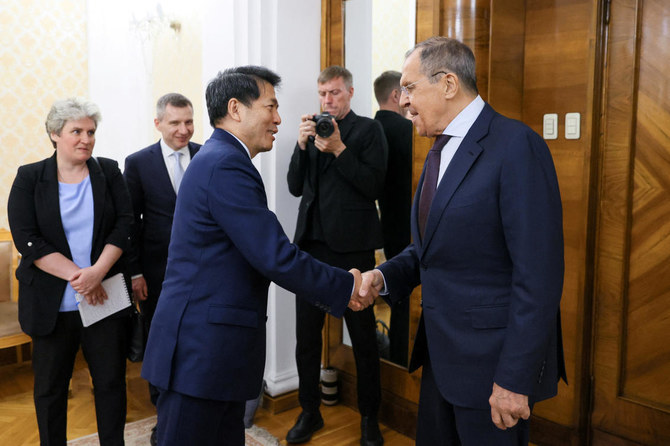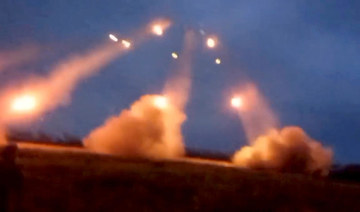DUBAI: President Vladimir Putin told his Brazilian counterpart Luiz Inacio Lula da Silva in call on Friday that Russia was open to dialogue over Ukraine, the Kremlin said, shortly after Foreign Minister Sergei Lavrov welcomed a Chinese peace envoy to Moscow.
Russia has repeatedly said it was open to resuming peace talks with Kyiv, which stalled a few months after Russia invaded Ukraine early last year, and has welcomed mediation efforts from both Brazil and China.
But it has insisted that any negotiations must be based on “new realities,” meaning its declared annexation of four Ukrainian provinces that it largely or partly controls — a condition unacceptable to Kyiv.
China for its part signed a “no limits” partnership with Russia less than three weeks before the invasion, and has not only refrained from criticizing Moscow but also dramatically expanded its Russian energy imports since the start of the war.
It has put forward a 12-point plan for peace in Ukraine that involves declaring a cease-fire but does not stipulate that Russia should withdraw from any of the territory it has seized.
In his meeting with Li, Lavrov expressed gratitude for China’s “balanced position” and willingness to play a positive role, his ministry said.
The Chinese proposal has drawn skepticism from the West, with NATO saying Beijing — whose president, Xi Jinping, made a high-profile state visit to Moscow in March — lacked credibility as a mediator.
Lula has also pitched himself as a peace broker and proposed, in line with Brazil’s tradition of non-intervention and neutrality, that a group of nations not involved in the war should engage both Russia and Ukraine in talks.
“I reiterated Brazil’s willingness, along with India, Indonesia and China, to talk to both sides of the conflict in pursuit of peace,” he tweeted.
Lula has condemned the invasion but he irritated Washington — and pleased Moscow — last month when he suggested the West had been “encouraging” war by arming Ukraine.
Ukrainian President Volodymyr Zelensky did not meet Lula when both men attended a Group of Seven summit in Japan last weekend, despite finding time to speak to an array of other national leaders.
Russian Security Council Deputy Chairman Dmitry Medvedev, a hawkish senior ally of Putin’s, was quoted on Friday as saying Russia could not trust any truce with Ukraine, and would therefore have to destroy the “very nature” of power in Kyiv.
Russia says it discussed peace prospects for Ukraine with Chinese special envoy
Short Url
https://arab.news/zjr3r
Russia says it discussed peace prospects for Ukraine with Chinese special envoy

- Russia has repeatedly said it was open to resuming peace talks with Kyiv and has welcomed mediation efforts from both Brazil and China
- In his meeting with Li, Lavrov expressed gratitude for China's "balanced position" and willingness to play a positive role















